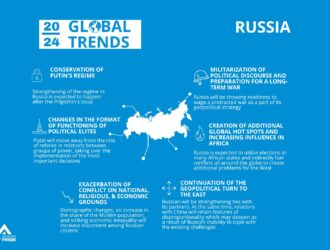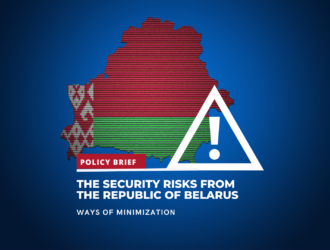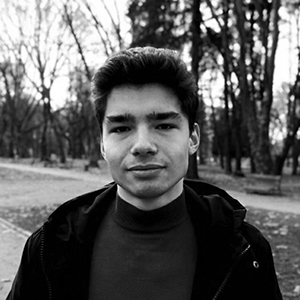Pavlo Rad
Junior Fellow of Russian and Belarusian Studies Program
Subscribe for Newsletter
Junior Fellow of Russian and Belarusian Studies Program
Studies international law at the Ivan Franko National University of Lviv. Former scholarship holder of the Digital Interdisciplinary Mini-Academy IUSTUF (DIMA), a project under the auspices of the DAAD’s program “Ukraine Digital: Ensuring Academic Success in Times of Crisis”, organized at the Albert-Ludwigs-University of Freiburg. Student activist. Participant in over 10 scientific conferences and author of 10 scientific papers. Former intern at the Foreign Policy Council “Ukrainian Prism”.
Research interests:
- ● Political processes in the Republic of Belarus and the Russian Federation;
- ● Activities of the Belarusian opposition, particularly the United Transitional Cabinet;
- ● International criminal law and the law of international organizations.
Media
The Ways of Ensuring the Viability of a New Belarusian Government in a Transitional Period Trends 2024: Russia The Security Risks from the Republic of Belarus: Ways of Minimization (Українська) Роль режиму Лукашенка в російсько-українській війні (Українська) Громадяни Білорусі: по обидва боки російсько-української війниRecent Publications

The Belarusian democratic forces have achieved certain successes in terms of developing government-like structures and keeping the Belarusian issue on the agenda of European states. To continue further institutionalization and be prepared for the transformation period, there is a need to train a new generation of officials who could take over the state in the future.

2024 will be a year of relative strengthening of President Putin’s regime. As a result, the Russian president will further move away from the role of referee in relations between influence groups within Russian political elites.

After the beginning of the large-scale aggression of the Russian Federation against Ukraine, the strategic importance of Belarus, which remains the only Russian formal ally in Europe, has significantly increased. Due to this, there is a need to increase attention and efforts of Ukraine, Poland, and Lithuania aimed at reducing Russian influence in Belarus and creating prerequisites for possible democratic transformations.



